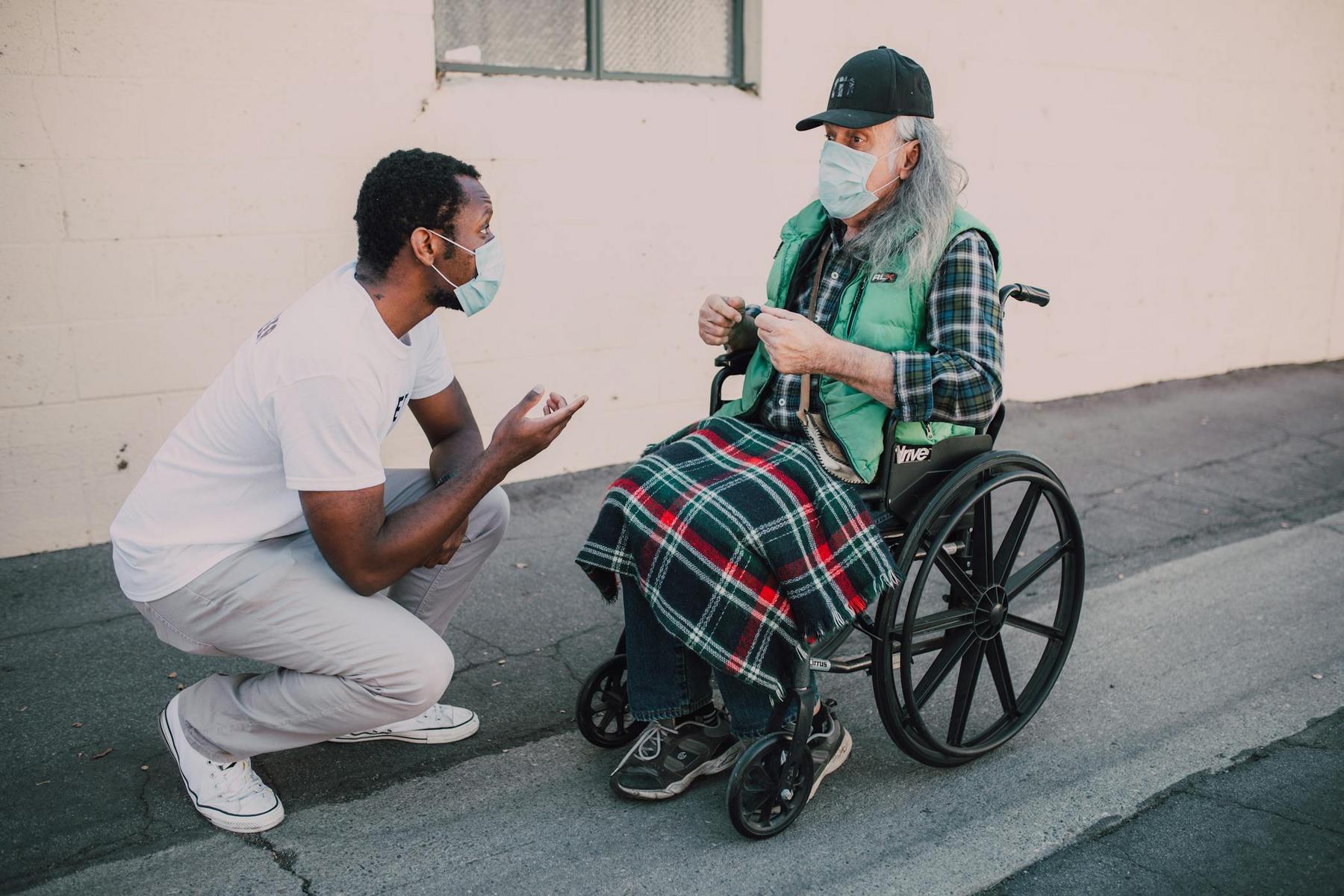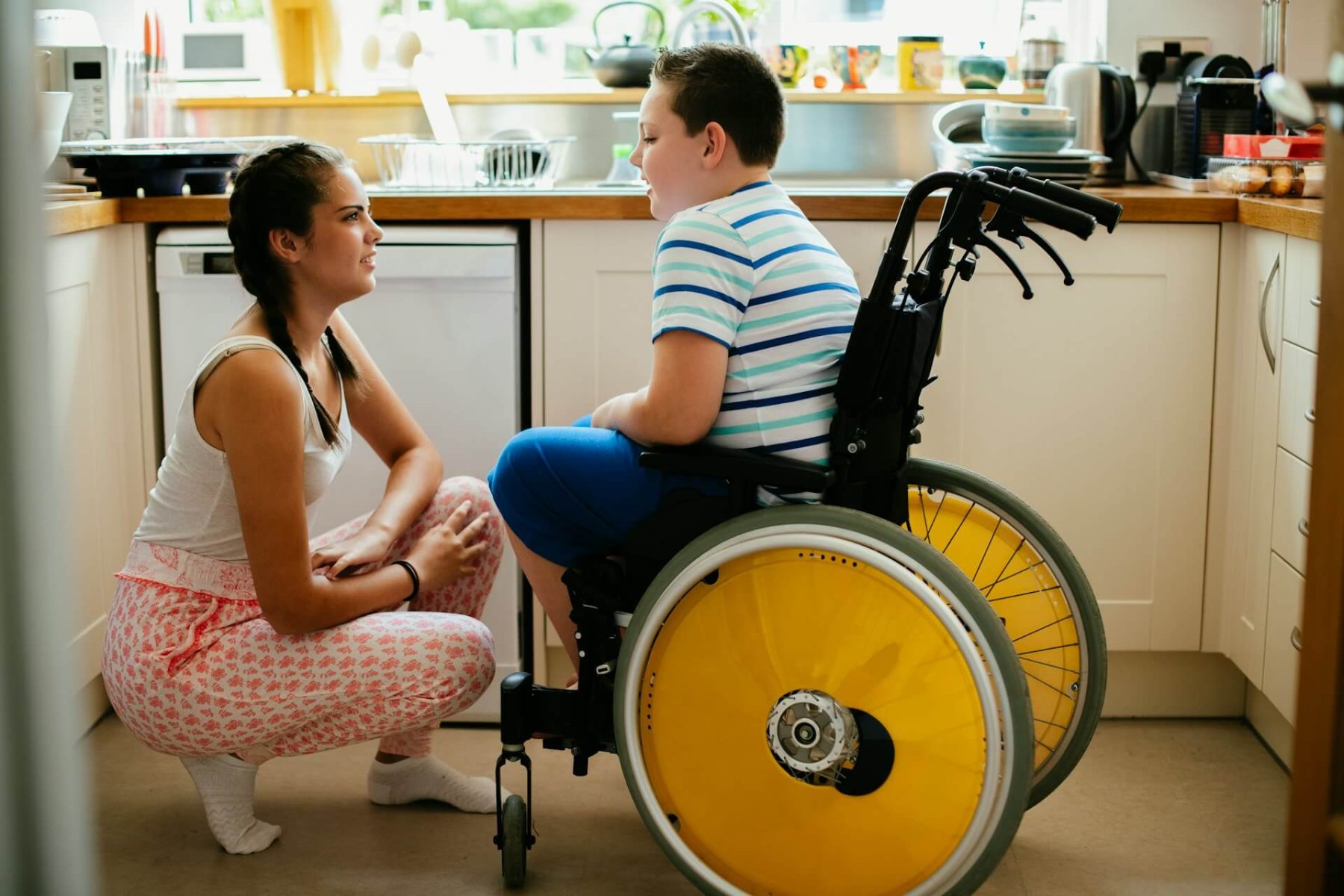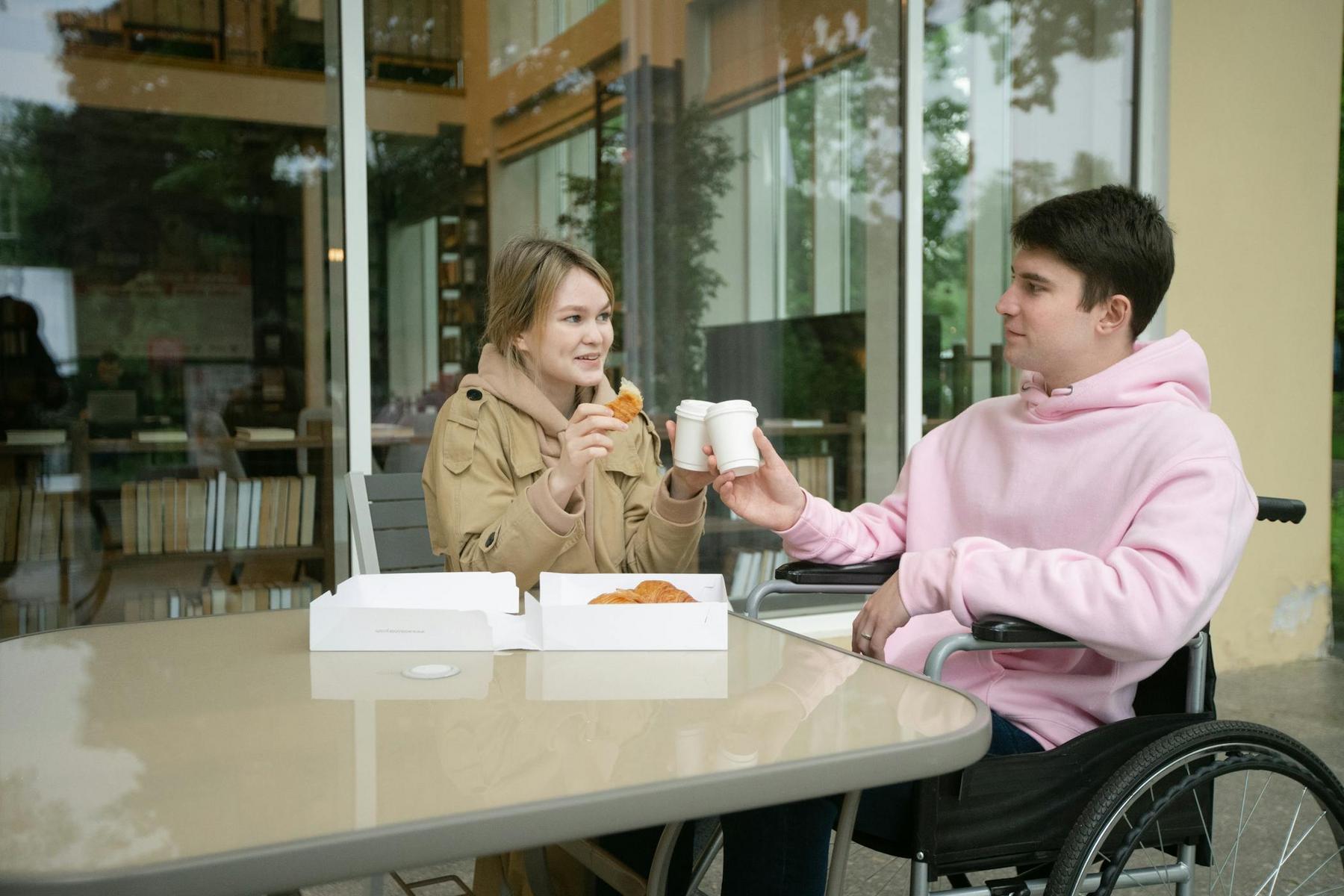In the demanding world of disability care, providing high-intensity support requires more than just compassion and good intentions. It demands specialised knowledge, refined skills, and an unwavering commitment to person-centred care. For families and individuals living with complex needs in Cairns and across Queensland, the difference between standard support and high-quality, high-intensity care can be transformative—enabling independence, dignity, and an enhanced quality of life.
At Advanced Disability Management, we understand that behind every exceptional support service stands a well-trained, confident carer equipped with the right skills and knowledge. As NDIS standards evolve and participant needs become increasingly complex, the importance of comprehensive training programs has never been more critical.
What Constitutes High-Intensity Support in the NDIS Framework?
High-intensity daily personal activities (HIDPAs) are specialised supports requiring advanced clinical knowledge and technical expertise. The National Disability Insurance Scheme distinguishes between standard and high-intensity supports based on the level of risk, complexity, and specialised skills involved.
High-intensity supports typically include:
- Management of tracheostomy and ventilation assistance
- Enteral (tube) feeding and nutrition
- Complex bowel care including stoma management
- Urinary catheter maintenance
- Subcutaneous injections
- Epilepsy management including seizure response
- Complex wound care
- Support for unstable or deteriorating conditions
- Management of severe behaviours of concern
These activities require direct oversight from qualified health professionals and necessitate carers to have specific training in risk management and emergency response.
Under current NDIS Practice Standards, providers delivering high-intensity supports must register under Group 0104 and maintain comprehensive staff competency records. These records must be verified by registered nurses or allied health practitioners who can attest to the carer’s capabilities in performing complex procedures safely.
The clinical complexity of high-intensity supports is best illustrated through a comparison with standard support activities:
| Support Area | Standard Support | High-Intensity Support |
|---|---|---|
| Epilepsy Management | Monitoring predictable seizures, basic first aid | Administering rescue medications, managing cluster seizures, interpreting complex seizure patterns |
| Nutrition Support | Meal assistance, food preparation | PEG/PEJ tube feeding, managing feed pumps, addressing complications |
| Behaviour Support | Following positive behaviour plans, basic de-escalation | Implementing complex behaviour support plans, managing severe behaviours, crisis intervention |
| Respiratory Care | Oxygen monitoring, basic airway management | Tracheostomy care, ventilator management, suctioning |
| Medication Administration | Prompting oral medication | Administering complex medication regimes, subcutaneous injections |
What Core Training Components Are Essential for High-Intensity Support Carers?
Developing competency in high-intensity support begins with formal qualifications but extends far beyond classroom learning. In Cairns, effective training programs integrate multiple learning methodologies to ensure carers can confidently manage complex care scenarios.
Accredited Qualifications and Specific Skill Certifications
The foundation of high-intensity support training typically includes:
- Certificate III in Individual Support (CHC33021) with disability specialisation
- Certificate IV in Disability (CHC43115)
- NDIS High Intensity Support Skills (HISS) certifications for specific procedures
- First Aid and CPR certification with regular refreshers
While these qualifications provide essential knowledge frameworks, they must be supplemented with specialised training modules directly aligned with the NDIS High Intensity Support Skills Descriptors (HISSD).
Practical Skills Development
“Understanding theory is only the beginning—mastery comes through guided practice under expert supervision,” explains the clinical training team at Advanced Disability Management.
Effective skill development includes:
- Supervised clinical practicum sessions with experienced mentors
- Scenario-based simulations of emergency situations
- Hands-on demonstrations with anatomical models
- Regular competency assessments for each high-intensity procedure
- Virtual reality training for complex procedures
Person-Centred Approach to Training
High-intensity support training must always maintain focus on the individual receiving care. This includes:
- Understanding how to adapt procedures to individual preferences
- Communication strategies for working with participants with diverse needs
- Cultural safety training, particularly relevant in Cairns’ diverse communities
- Trauma-informed care principles
- Ethical decision-making in complex care situations
As one experienced carer notes, “Technical proficiency means little without understanding the person behind the procedure. The best training teaches us both the ‘how’ and the ‘who’ of care.”
How Does Regulatory Compliance Impact High-Intensity Support Training?
The regulatory framework governing high-intensity supports creates specific training requirements that providers must meet to maintain registration and deliver quality care.
Documentation and Evidence Requirements
The NDIS Commission requires providers to maintain comprehensive records of training and competency assessment, including:
- Individual staff training records with verification of competency
- Participant-specific risk assessments signed by treating health professionals
- Detailed care plans for high-intensity support procedures
- Incident reports that identify any potential training gaps
- Evidence of regular skill reviews and refresher training
Advanced Disability Management implements digital portfolio systems that track staff certifications and automatically flag credential expiry dates, ensuring continuous compliance with regulatory requirements.
Clinical Governance Frameworks
Effective high-intensity support requires robust clinical governance, including:
- Clear escalation pathways when complications arise
- Regular supervision from qualified health professionals
- Policies defining scope of practice for different staff roles
- Quality improvement processes that incorporate feedback from participants
- Regular audits of high-risk procedures
“Clinical governance isn’t just about ticking boxes—it’s about creating systems that support carers to deliver consistently excellent care,” notes the Quality Assurance team at Advanced Disability Management.
What Role Does Technology Play in Modern Carer Training?
Technological innovation has transformed how high-intensity support skills are taught, assessed, and maintained, particularly in regional areas like Cairns where geographical barriers can limit access to training.
Simulation and Virtual Reality
Advanced simulation technologies now allow carers to:
- Practice high-risk procedures in risk-free environments
- Experience realistic emergency scenarios
- Receive immediate feedback on technique
- Build confidence before working with participants
Studies show that skills learned through high-fidelity simulation have higher retention rates and transfer more effectively to real-world care situations.
Remote Learning and Mobile Applications
For carers in remote communities around Cairns, technology enables:
- Access to online learning modules with video demonstrations
- Virtual classrooms with real-time instructor feedback
- Mobile apps that reinforce key concepts through microlearning
- Digital competency assessments that can be completed anywhere
Advanced Disability Management employs a blended learning approach that combines face-to-face skills development with digital learning opportunities, making high-quality training accessible to carers across Far North Queensland.
Performance Tracking and Continuous Improvement
Digital training platforms now offer:
- Personalised learning pathways based on identified skill gaps
- Data analytics that identify common areas for improvement
- Virtual coaching through body-worn cameras and telehealth
- AI-assisted feedback on technique and procedure
These technological advances ensure that training is not a one-time event but an ongoing process of skill refinement and development.
How Can Carers Overcome Challenges in Regional Training Delivery?
Providing consistent, high-quality training in regional areas like Cairns presents unique challenges that require innovative solutions.
Addressing Geographical Barriers
With many NDIS participants living in remote communities across Far North Queensland, creative approaches to training delivery include:
- Mobile training units that bring simulation equipment to remote locations
- Community-based skill-sharing networks
- Intensive block training sessions that minimise travel requirements
- Partnerships with local health facilities for clinical placements
Advanced Disability Management invests in bringing training directly to carers rather than requiring extensive travel to central locations, recognising that accessible training is essential for building workforce capacity.
Building Cultural Competence
In Cairns’ diverse communities, cultural safety is an essential component of high-intensity support training:
- Specialised modules on supporting Aboriginal and Torres Strait Islander participants
- Collaboration with cultural advisors to ensure appropriate care approaches
- Integration of cultural considerations into clinical skills training
- Recognition of traditional healing practices alongside modern clinical techniques
Effective high-intensity support requires cultural humility and the ability to adapt clinical procedures to honour cultural preferences and practices.
Workforce Retention and Professional Development
Maintaining a skilled workforce in regional areas requires:
- Clear career progression pathways for high-intensity support specialists
- Wellbeing supports to prevent burnout
- Peer mentorship programs that build professional community
- Recognition and reward for skill development
As one senior carer at Advanced Disability Management shares, “Knowing there’s a pathway for growth and that my specialised skills are valued makes all the difference in choosing to stay in this challenging but rewarding field.”
What Does the Future Hold for High-Intensity Support Training?
As we look towards the future of high-intensity support in Cairns and beyond, several promising developments are emerging:
Micro-Credentialing and Specialised Skill Pathways
Rather than requiring complete qualifications for every skill area, the trend towards micro-credentials allows carers to:
- Develop specialised skills in specific high-intensity support domains
- Build customised skillsets based on participant needs
- Receive recognition for competencies without full qualification enrolment
- Continuously update skills as best practices evolve
This approach supports greater workforce flexibility and allows experienced carers to demonstrate mastery in specialised areas.
Interprofessional Training Models
Future training programs are increasingly bringing together:
- Disability support workers
- Allied health professionals
- Registered nurses
- Mental health specialists
This interprofessional approach reflects the reality of supporting participants with complex needs, where coordinated care across disciplines delivers the best outcomes.
Participant-Led Training Innovation
Perhaps most importantly, the future of high-intensity support training places participants at the centre:
- Involving participants in training design and delivery
- Creating simulations based on real participant experiences
- Measuring training effectiveness through participant outcomes
- Emphasising the balance between technical skill and person-centred care
As one participant supported by Advanced Disability Management observes, “The best carers combine perfect technique with genuine connection—they see me, not just my support needs.”
Conclusion: Excellence in High-Intensity Support Through Continuous Learning
The journey to excellence in high-intensity support is never complete. As care practices evolve, technology advances, and our understanding of person-centred support deepens, training must continuously adapt to meet these changing landscapes.
For carers in Cairns and across Queensland, access to comprehensive, high-quality training in high-intensity support creates the foundation for confident, competent care. For participants, well-trained carers make the difference between merely receiving support and truly thriving with the right assistance.
Advanced Disability Management remains committed to investing in our team’s development, recognising that our participants deserve nothing less than exceptionally skilled carers who bring both technical excellence and genuine compassion to their roles. By embracing innovative training approaches, maintaining rigorous standards, and centring participant needs, we continue to enhance the quality of high-intensity support available in our community.
What qualifications do I need to provide high-intensity support?
To provide high-intensity support, you typically need a Certificate III in Individual Support (Disability) or Certificate IV in Disability as a minimum qualification. Additionally, you’ll require specific training and competency verification in each high-intensity procedure you’ll perform, such as enteral feeding or tracheostomy management. These competencies must be verified by qualified health professionals, and you’ll need to maintain current First Aid and CPR certification.
How often do high-intensity support skills need to be reassessed?
Most high-intensity support skills require annual reassessment to ensure ongoing competency. However, some more complex procedures may require more frequent verification—every six months or quarterly—particularly when they involve high-risk activities like airway management or seizure response. At Advanced Disability Management, we maintain a comprehensive competency calendar for each staff member to ensure all skills remain current.
Can high-intensity support training be completed online?
While some theoretical components of high-intensity support training can be delivered online, practical skills assessment must be conducted in person with qualified assessors. Effective training programs typically use a blended learning approach, combining online theory modules with face-to-face practical sessions and supervised clinical practice. This ensures carers develop both the knowledge and hands-on skills required for safe practice.
How does high-intensity support training differ for complex behavioural support?
Training for complex behavioural support focuses heavily on understanding the function of behaviours, preventative strategies, and de-escalation techniques rather than clinical procedures. It includes comprehensive training in positive behaviour support frameworks, trauma-informed approaches, and person-centred planning. Carers learn to identify triggers, implement behaviour support plans, and use restrictive practices only as a last resort, with strict adherence to reporting requirements.
What support is available for carers new to high-intensity procedures?
New carers should never perform high-intensity procedures without proper training and supervision. Support available includes mentorship from experienced carers, clinical supervision from nurses or allied health professionals, detailed procedure guides with visual instructions, and graduated responsibility as competence develops. Advanced Disability Management implements a buddy system where new carers shadow experienced staff before performing procedures independently.



